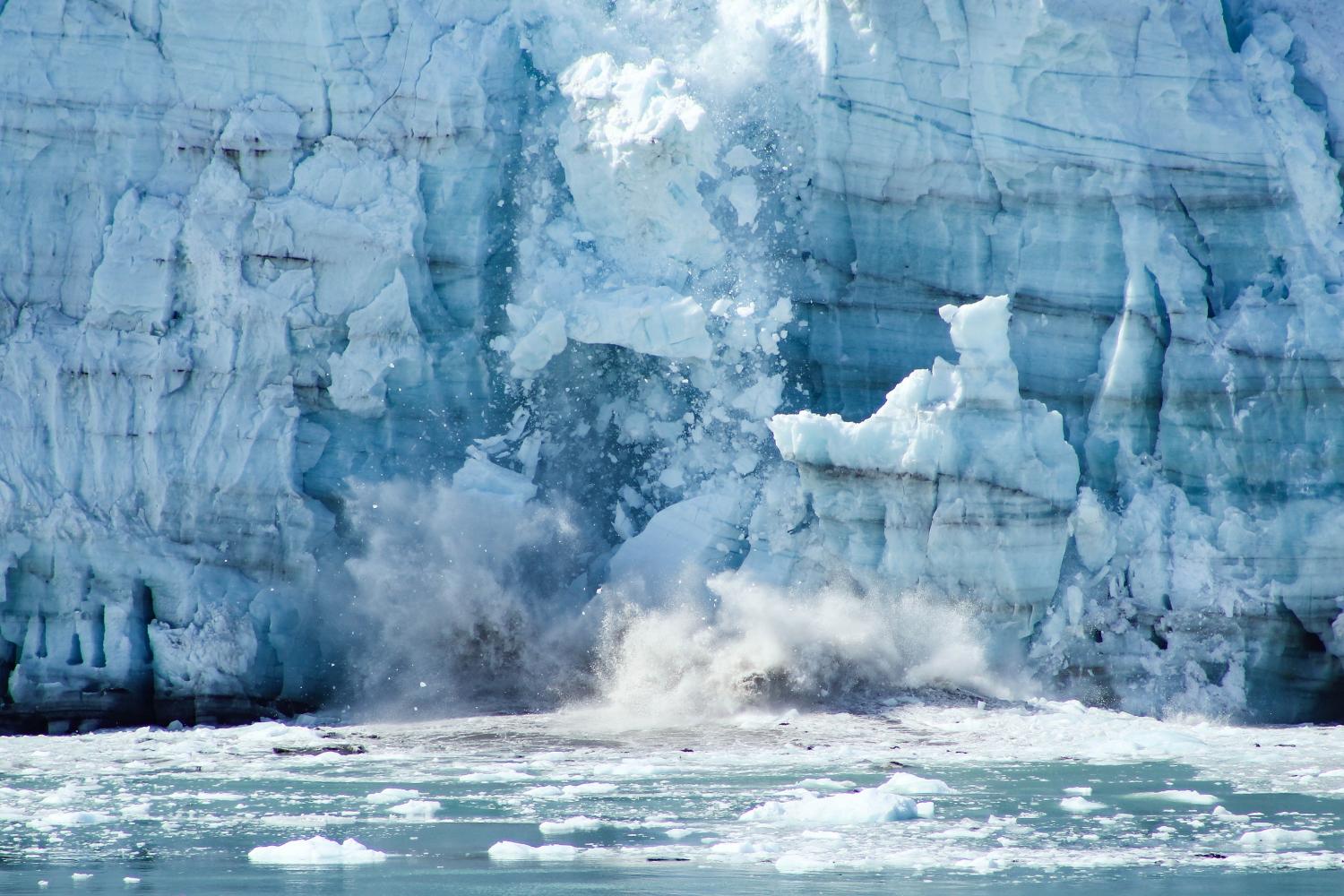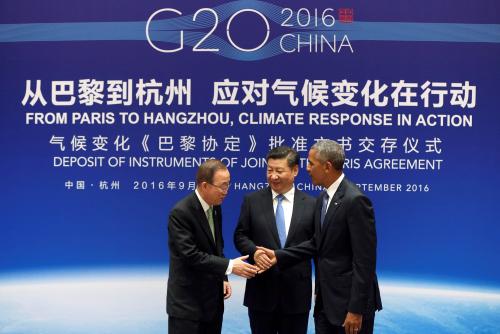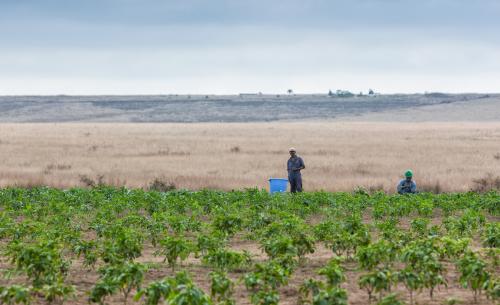Executive Summary
This study assesses the global macroeconomic consequences of changes in climate risk. We explore three broad areas: (1) the macroeconomic impacts of physical climate risk due to chronic climate change associated with global temperature increases and climate-related extreme shocks; (2) the macroeconomic effects of climate policies designed to transition to net zero emissions by 2050 (transition risk); and (3) the potential macroeconomic consequences of changes in risk premia in financial markets associated with increasing concern over climate events.
To assess the macroeconomic consequences of climate change, we consider four widely used climate scenarios (Representative Concentration Pathways, or RCP), and identify the physical damage functions due to chronic climate risks from the literature. The chronic climate risks considered in this study include sea-level rise, crop yield changes, heat-induced impacts on labor, and increased incidence of diseases.
We also identify methodologies to estimate the future incidence of climate-related extreme events from previous studies. Based on climate variable projections under the climate scenarios, we obtain probabilistic estimates for the future incidence of droughts, floods, heat waves, cold waves, storms and wildfires. Using historical occurrence of the extreme events, we estimate their impacts on labor force, agriculture and electricity generation sectors.
After translating physical climate shocks into economic shocks to labor force and sectoral productivity, we investigate the macroeconomic consequences under the climate scenarios using the G-Cubed model. The results demonstrate that physical climate risk is likely to cause large economic losses in all the RCP scenarios, both through chronic climate change and extreme climate shocks.
We explore the impact of country-specific economy-wide carbon taxes as a representative policy action to drive the global economy to achieve net-zero emissions by mid-century. Transition risks vary according to the ambition and the design of policies to reduce emissions. We do not calculate a distribution of transition risks by comparing the range of alternative policies that might be used to reduce emissions. However, the results for the particular example chosen demonstrate that there can be potentially significant costs associated with policies to reduce emissions, and the costs differ across sectors and across countries. As shown by Bang et al. (2020), the costs can vary greatly depending on the specific design of climate policy.
We also address whether changes in climate risk perceptions can significantly impact the real economy through changes in risk premia in financial markets. We calculate shocks to financial risk premia based on relationships between historical climate shocks and changes in financial market risk premia. We apply these shocks to risk premia under the RCP scenarios and find that the cost of rising risk premia can be of a magnitude consistent with historical experience. The cost appears to be smaller than the economic costs of changes in physical climate risk.
We find that chronic climate change, extreme climate shocks, and economic policies implemented to reduce CO2 emissions can have significant economic consequences. Under RCP 2.6 scenario the GDP losses from physical climate risk range between 0.6% of GDP in Australia to 3.2% of GDP in developing countries by 2050. This rises under RCP 8.5 to between 1% for the ROCED economies and 5.7% of GDP for oil exporting countries by 2050. The costs could be amplified if financial markets re-price climate-related risks with additional GDP losses of between 0.5% to 1.5% per year for all countries except Russia which experiences larger GDP losses across all scenarios by 2030.
The authors did not receive financial support from any firm or person for this article or from any firm or person with a financial or political interest in this article. They are currently not an officer, director, or board member of any organization with an interest in this article.








